Trump’s Remarks on Bitcoin Sparks a Crypto Debate Amongst Politicians
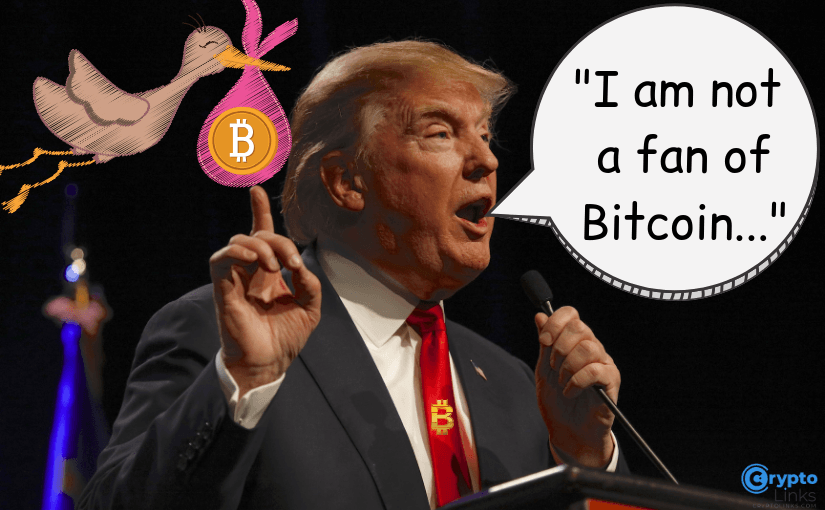
Donald Trump has become the first sitting US President to mention Bitcoin by name, an amazing feat given that the “magical, internet money” is just over ten years old, sparking a cryptocurrency debate amongst American politicians.
President Trump is “Not a Fan of Bitcoin”
While the US President’s remarks were negative, as the saying goes any publicity is good publicity.
Trump wrote on Twitter, “I am not a fan of Bitcoin and other cryptocurrencies, which are not money, and whose value is highly volatile and based on thin air.” The President also said that “unregulated crypto assets facilitate unlawful behavior, including drug trade and other illicit activity.”
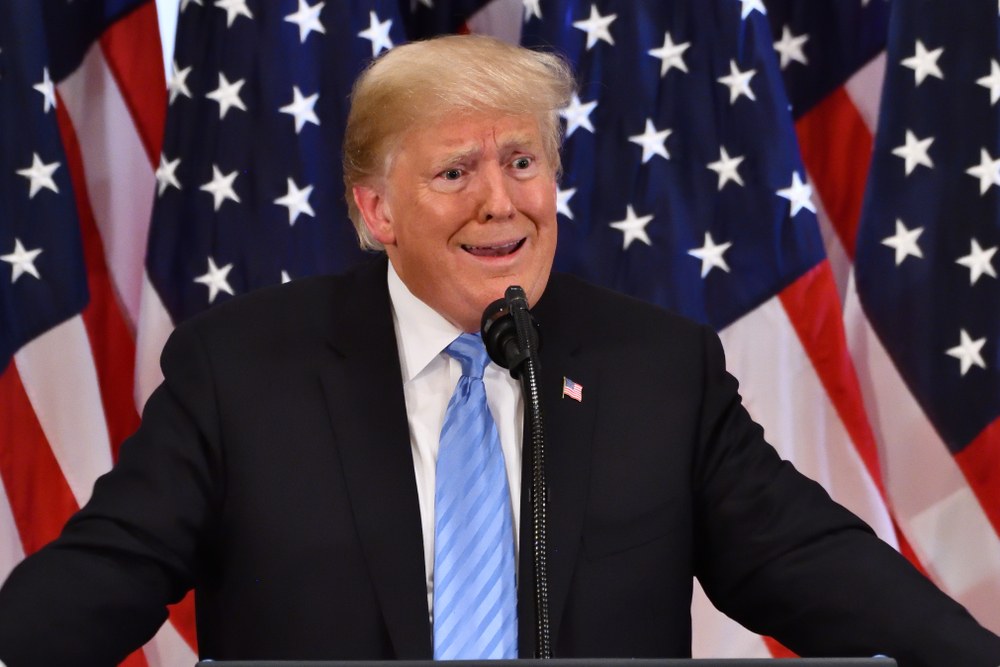
Trump’s tweet also shows how the status quo is feeling threatened by Bitcoin. Unfortunately for them, the cryptocurrency has survived and pushed onwards despite various ‘obituaries’ and attempts to smear it as enabling a criminal economy – a recurring accusation that is becoming less and less effective over time.
So let’s break down Trump’s statement on Bitcoin. The only thing that is objectively true about what Trump said is that bitcoin is highly volatile. Of course, if you know anything about Proof of Work, the statement that bitcoin is based on thin air is laughable – energy is required to mine bitcoin, basically capturing that energy and monetizing it.
Sure, bitcoin can facilitate crime, but that itself is a litmus test of money. Bitcoin does not facilitate crime no more than greenbacks or euros facilitate crime.
Moving on to the statement that bitcoin is not money, let’s imagine a drug consumer trying to convince their dealer to accept some baseball trading cards or something that is based on “thin air” to buy their drugs – it would be near impossible. The fact that some underground markets have adopted bitcoin and cryptocurrencies is an attestation that these new technologies operate as some form of money or value transfer.
While underground markets have embraced bitcoin, the share of the Bitcoin ecosystem that is involved in the illicit trade has decreased over time, with the majority involved in legitimate commerce.
According to a recent report from blockchain analytics firm Chainalysis, less than one percent of all bitcoin transactions are associated with the underground economy, falling from a peak of seven percent in 2012.
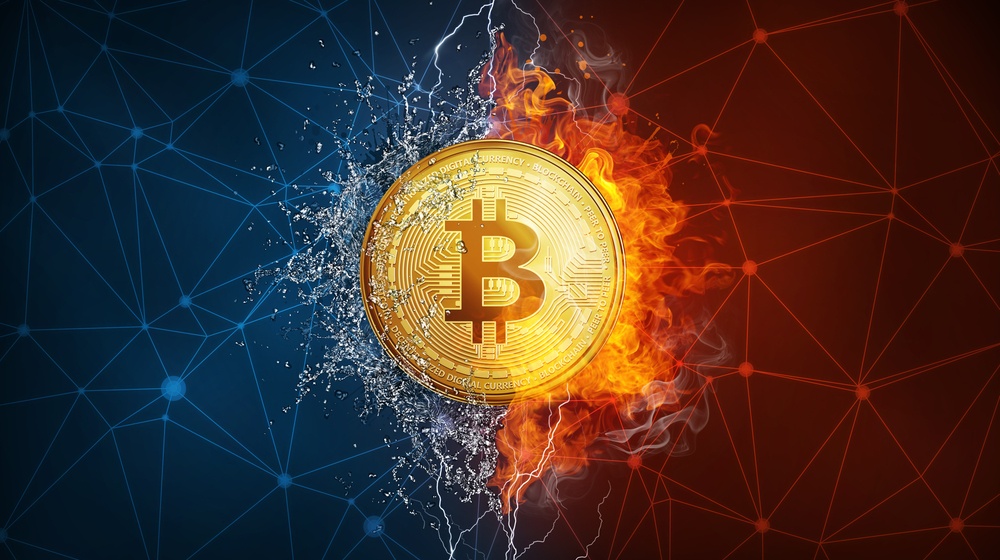
Bloomberg picked up on the story and noted that Chainanalysis estimated that around $1 billion will be transacted in underground markets using bitcoin this year.
Compare that to the size of underground markets in general, which usually transact in USD or other fiat currencies, and the difference is staggering. The Economist estimated that back in 1999 the value of the underground market globally was about $9 trillion, so bad behavior facilitated by bitcoin is a drop in the ocean.
US Treasury Secretary: Crypto is a “National Security Threat”
It wasn’t just Trump who tried to jawbone bitcoin. The US Treasury Secretary Steven Mnuchin called cryptocurrencies a “threat to national security”. Mnuchin pointed to fears that cryptocurrencies would be used for “cybercrime, tax evasion, extortion, ransomeware, illicit drugs and human trafficking.”
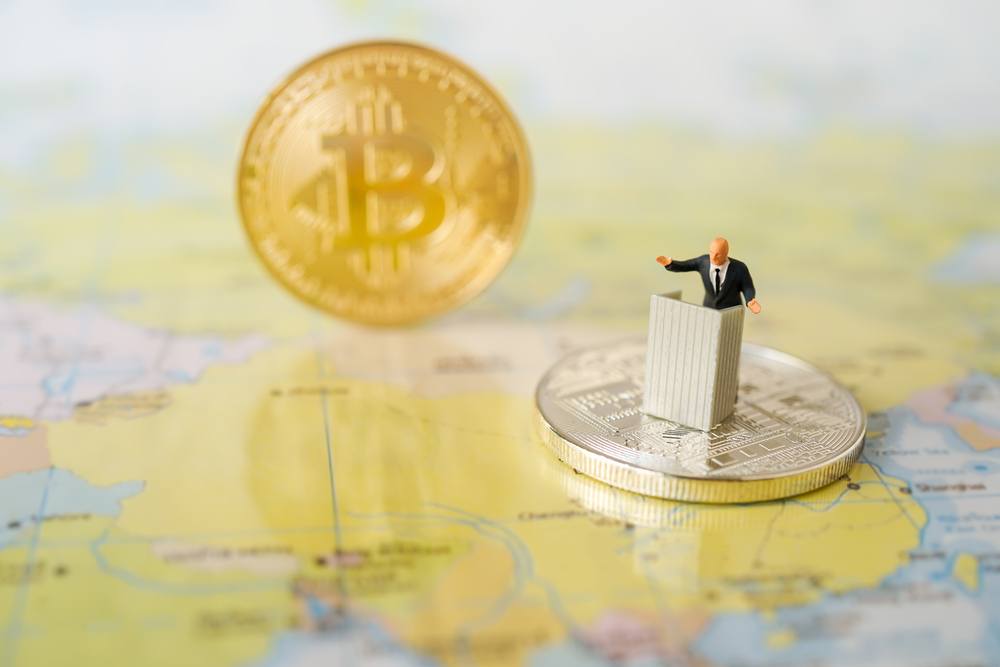
Even though these activities exist in some form in the Bitcoin economy, the size of these activities compared to these industries using fiat is miniscule as we’ve already mentioned. Also, these criminals using bitcoin are often caught and face justice as the blockchain is completely transparent and can be used to investigate these criminals.
The way Mnuchin’s statement lumps all of these illicit activities together is also misleading. Cybercrime and ransomware are obviously big problems with cryptocurrency and bitcoin certainly helps these criminals quite a lot. Whereas with tax evasion and human trafficking, the use of bitcoin is not as widely prevalent, since cryptocurrencies do not really add that much value as compared to cybercrime.
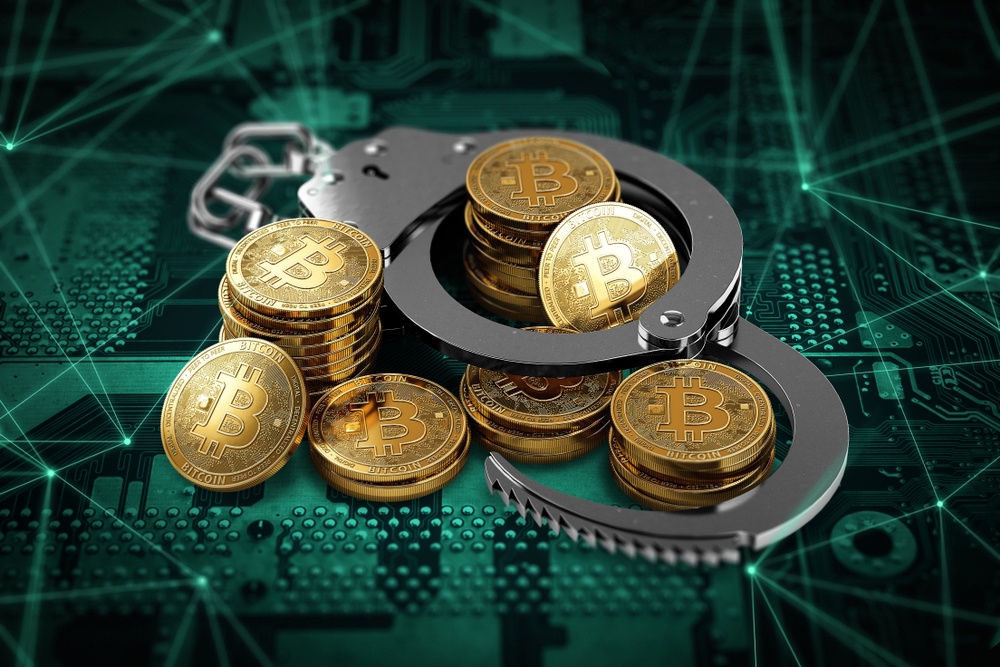
Trump’s focus on Bitcoin has raised concerns that the administration might try to stifle Bitcoin in some way, with Fundstrat analyst Tom Lee saying that the coverage of bitcoin is too much of a good thing and, although it is unlikely, it might prompt the President to legislate in some way against the cryptocurrency.
Bitcoin is Not Against the ‘War on Drugs’, Just Neutral
Just recently, the Bitcoin ledger was used to track down an individual who had sold a large quantity of drugs on the Silk Road marketplace. Because the transactions are stored on the public blockchain forever, the individual’s past caught up with him after being recently charged with money laundering derived from the proceeds of drug sales on Silk Road.

So despite Mnuchin’s concerns, Bitcoin was designed in a way such that it is apolitical and absolutely neutral on the ‘war on drugs’.
Bitcoin does not help the authorities or drug organisations or dealers any more than the other. With the public blockchain, law enforcement can monitor activity freely and build a case by linking other information to data from the blockchain. On the other hand, bitcoin provides an uncensorable form of money that can be used to transact with on the underground market.
American Politicians Join the Bitcoin Debate
However, not all American politicians share Trump’s or Mnuchin’s views. For instance, former Republican congressman and presidential candidate Ron Paul says cryptocurrency is “a great idea”. As a long time critic of the Federal Reserve and proponent of libertarianism, Ron Paul is naturally an advocate of bitcoin as well.
Paul said that he supports currency competition and that the Federal Reserve has artificially manipulated interest rates, putting interventionism over market forces. As to the future of cryptocurrency, Paul said that he himself has many questions and doesn’t has an advanced grasp of the technology behind it, but stated that the markets will eventually decides who will win out of Bitcoin or governments and central banks around the world.
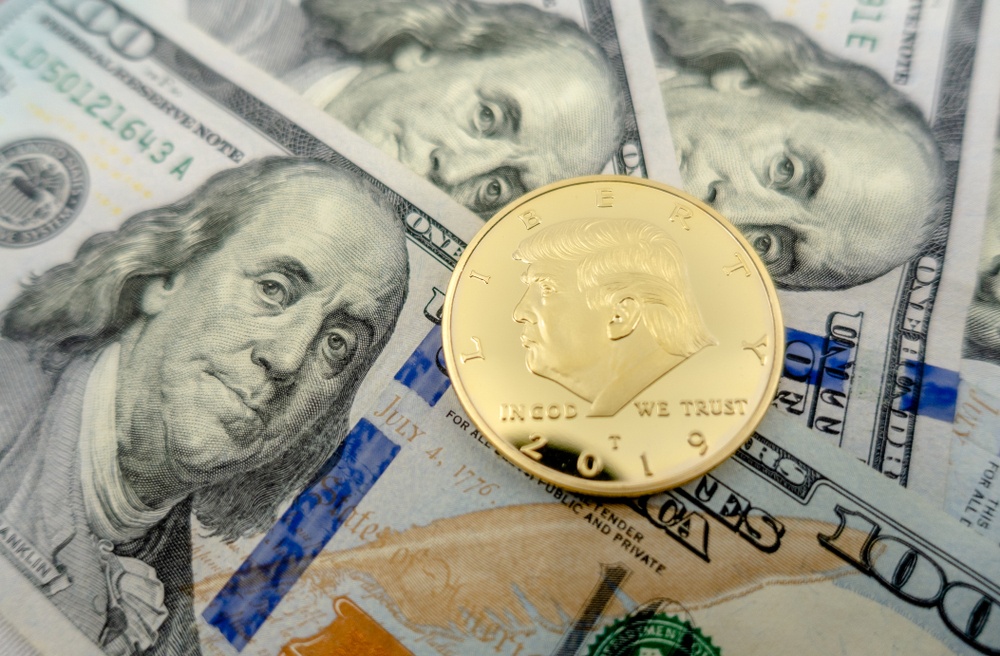
Another American politician come out in defense of Bitcoin and sensible regulation during a hearing on July 17 about Facebook’s Libra cryptocurrency. The Republican congressman Patrick McHenry said:
“The world that Satoshi Nakamoto envisioned, and others are buildings, is an unstoppable force. We should not attempt to deter this innovation, and governments cannot stop this innovation and those that have tried already failed.”
McHenry went on to suggest that innovations such as bitcoin should not be stifled as the living standards we enjoy today are the result of various innovations over the centuries.
Could Bitcoin Become a Talking Point for the 2020 Presidential Elections?
With increasing scrutiny of Facebook’s Libra by US officials and Trump’s tweet about bitcoin, it seems that bitcoin could become an issue to be debated in the 2020 presidential race for the first time ever.
Some of the presidential candidates have already spoken about bitcoin and blockchain technology, such as Democrat Andrew Yang who previously praised the technology by saying, “The blockchain has a wealth of potential… It could make many things more transparent and efficient.”
Yang also announced in 2018 that he would be accepting cryptocurrencies like bitcoin and ether for his presidential campaign and wants to implement a policy of universal basic income so that each American adult gets $1,000 per month.
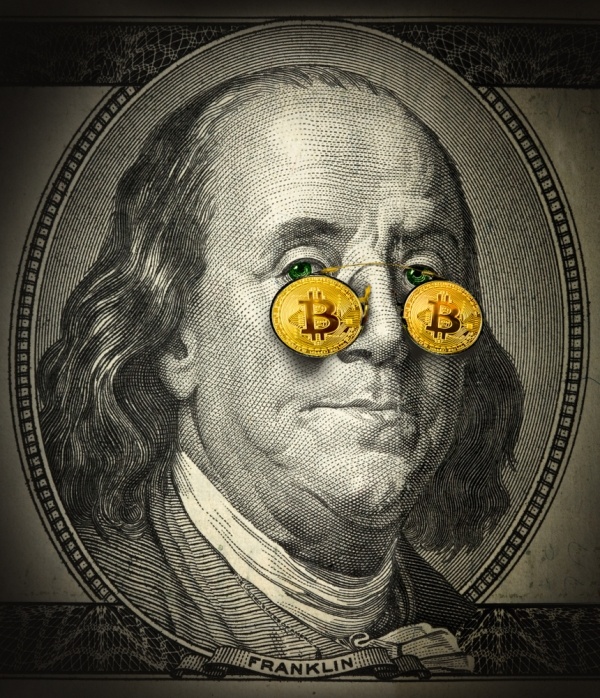
Another Democratic party hopeful, Tulsi Gabbard, invested in ethereum and litecoin in late 2017 according to financial filings and Republican Eric Swalwell also accepted bitcoin for donations until he pulled out of the race in July 2019.
John McAfee, who is running as a Libertarian party candidate, is a well-known cryptocurrency advocate. His firm MGT Capital has been involved in cryptocurrency mining for a few years now. McAfee is also present at crypto conferences and is a popular figure in crypto-twitter. While the chances of him getting into the White House is slim, it goes to show how the political landscape is changing and taking notice of bitcoin.
Trump’s spotlight on bitcoin influenced the markets, with the price of bitcoin dropping from around $12,000 on July 11 (which is when Trump took to Twitter to criticise bitcoin) to a low near $9,000 by July 17. Since then bitcoin has gained upside momentum, regaining the $10,000 handle and closing in on $11,000 at the time of writing.
Bitcoin is Becoming Part of the Dialogue
It will be very interesting to see how a president supportive of bitcoin will regulate or empower the cryptocurrency industry. The Federal Reserve is by definition independent of government and political influence.
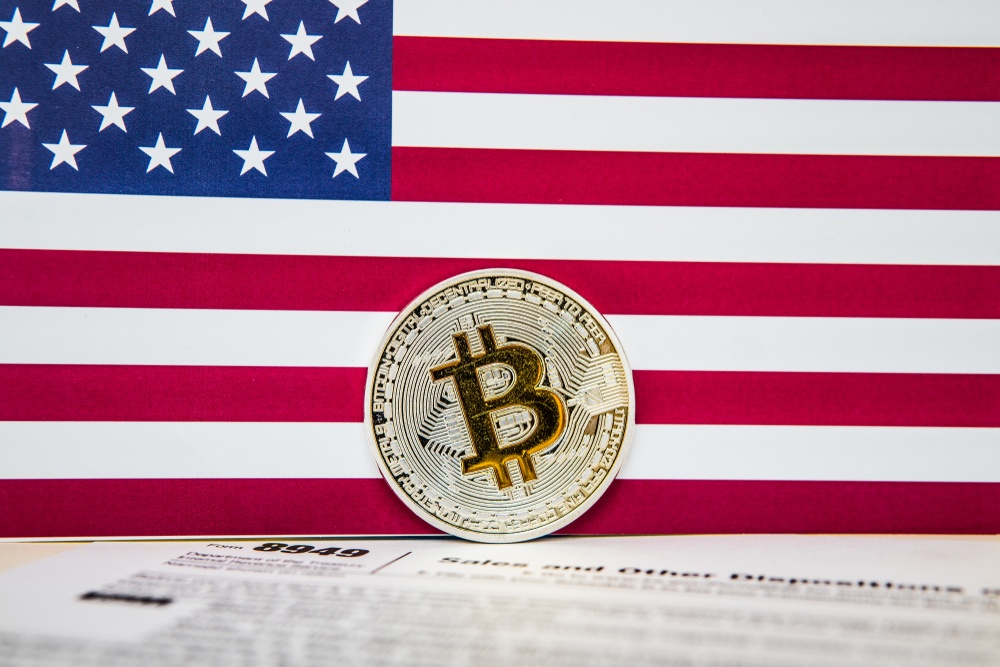
With Donald Trump, we are already seeing some sort of a clash between the White House and the Federal Reserve, as the current President presses for large cuts to the baseline interest rate. It would be exciting to see a President in office that openly defies the Federal Reserve and gives bitcoin status as legal tender, as it does in Japan, but maybe that is a bit of a pipe dream at the moment.
Nonetheless, it is positive that bitcoin is being talked about by politicians and the sooner they realise it is not a threat and a way of promoting freedom and commerce, the better.
